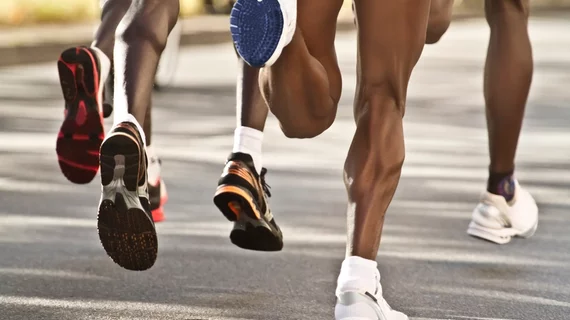Researchers examine ultra-marathon runners’ hearts using CMR
Experts have theorized that ultra-marathon runners may face negative cardiovascular changes due to their extreme training methods. A team of Polish-led researchers used cardiovascular MR (CMR) to investigate this, publishing their findings in the European Journal of Radiology.
“Marathon and ultra-marathon running are examples of extreme forms of training,” wrote corresponding author Michał Brzewski, of Medical University of Warsaw’s Department of Pediatric Radiology in Poland, and colleagues. “Participation in these endurance competitions may lead to transient increases of serum troponin concentration (a biomarker of cardiac injury) and to reduced cardiac systolic function.”
The team set out to analyze structural changes of the heart in long-time ultra-marathon runners using CMR, focusing specifically on myocardial fibrosis using parametric mapping techniques.
The researchers recruited 30 healthy male ultra-marathon runners (median age 40.9) and 10 matched controls not engaged in regular activities to undergo CMR, including T1-mapping, late gadolinium enhancement and extracellular volume quantification. Runners had several years of high level (running at least 70 km/week) experience and frequent competitive starts in ultra-marathons.
In the runners, the authors observed a more than 40% volume increase in ventricles compared to the controls. The athletes also had “significantly” larger heart chambers and left ventricular mass.
Additionally, in athletes, there were no signs of significantly increased fibrosis and no significant changes in myocardial wall thickness compared to controls.
“Ultra-marathon runner’s hearts demonstrate a high degree of structural remodeling in comparison to controls, including symmetric increases of left and right ventricular volume, higher bi-atrial size and left ventricular mass with unchanged systolic function of both ventricles,” the authors concluded.

